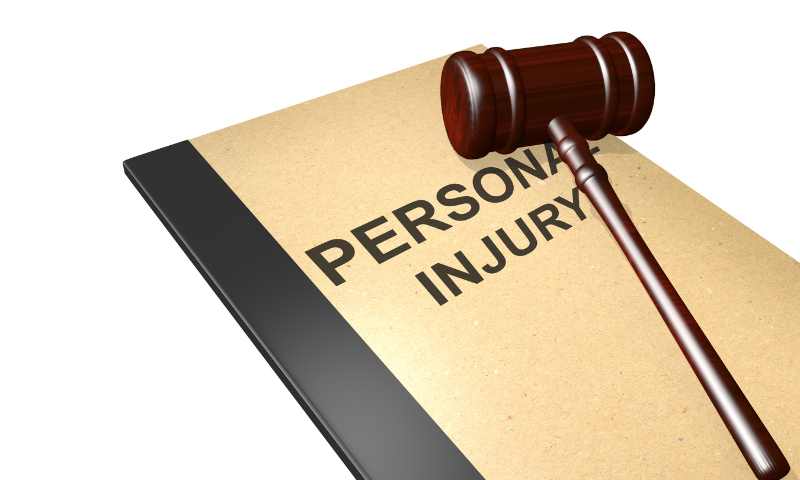Settlement Vs. Trial: What’s the Best Option for Your Personal Injury Case in Brooklyn?

When it comes to personal injury cases, the decision between settlement and trial can be a difficult one. It is important for anyone in Brooklyn who has been injured due to someone else’s negligence or recklessness to understand the differences between these two options before deciding which route they should take.
At Held, Held & Held, we care deeply for our clients, and we work to achieve the best possible case outcome for them. When you work with our Brooklyn personal injury lawyers, we will review your case and advise you on whether you should pursue a settlement or trial. Ultimately, the decision is up to you, but we will help you make an informed and confident choice.
Settlement: Pros and Cons
A personal injury settlement is a resolution reached between the injured party and the responsible party or their insurance company, usually involving a payment of compensation to the injured party in exchange for dropping any further legal action.
Here are some benefits of a settlement:
- Guaranteed compensation — When you settle your personal injury case, you can be assured of receiving compensation for your injuries without the uncertainty of a trial outcome.
- Quick resolution —Settlement negotiations can be quicker than waiting for a trial date, allowing you to receive compensation sooner.
- Less stress — Settlement negotiations tend to be less stressful than a trial, as they are conducted in a more informal setting.
- Cost-effective — Settling a personal injury case is often more cost-effective than taking it to trial. The costs of a trial, including legal fees and court costs, can add up quickly.
Here are some drawbacks of accepting a settlement:
- Lower compensation — The compensation offered in a settlement may be lower than what you could potentially receive through a trial verdict.
- Limited recovery — You may be limited in the types of damages you can recover through a settlement. For example, you may not be able to recover punitive damages in a settlement.
- Non-disclosure agreements — Some settlements require you to sign a non-disclosure agreement, preventing you from publicly discussing your case’s details.
- Limited control — When you settle your personal injury case, you give up your right to appeal the decision or pursue additional damages in the future.
Trial: Pros and Cons
A personal injury trial is a legal proceeding in which a judge and jury hear evidence and arguments from both sides to determine whether the responsible party is liable for the plaintiff’s injuries and, if so, the amount of compensation the plaintiff is entitled to receive.
Consider these advantages of going to trial:
- Potentially higher compensation — A trial verdict could result in a higher compensation amount than what was offered in a settlement.
- Opportunity to tell your story — During a trial, you have the opportunity to tell your story and present evidence in front of a judge and jury.
- Accountability — Taking your case to trial can hold the responsible party accountable for their actions and potentially prevent them from harming others in the future.
- Appeals process — If you are dissatisfied with the trial verdict, you have the option to appeal the decision.
Now, let’s take a look at some of the disadvantages of going to trial:
- Uncertainty — Trials are unpredictable, and the outcome is never guaranteed.
- Time-consuming — Trials can take months or even years to complete, delaying compensation for the injured party.
- Stressful — Trials can be emotionally and mentally draining, as they involve intense preparation and public exposure.
- Expensive — Trials are typically more expensive than settling a case out of court, as they require legal fees, expert witness fees, and court costs.
It’s important to weigh these pros and cons when deciding whether to take your personal injury case to trial. A skilled personal injury lawyer can help you evaluate your case and determine your best course of action.
How to Decide Between a Settlement and Trial
If you’ve been injured in an accident and are pursuing a personal injury claim, one of the most important decisions you’ll make is whether to accept a settlement or take your case to trial. Both options have their pros and cons, and ultimately, the decision will depend on the specific circumstances of your case.
To make an informed decision, consider the following factors:
- The strength of your case — A skilled personal injury lawyer can help you assess the strength of your case and the likelihood of winning at trial.
- Potential compensation — Consider the potential compensation you may receive in a settlement versus a trial verdict. Trials can result in higher compensation amounts, but settlements can provide a quicker and more cost-effective resolution.
- Time and resources — Trials can be lengthy and costly, while settlements can provide a more efficient resolution.
- Emotional and mental impact — Trials can be stressful and emotionally draining, while settlements can provide a quicker resolution and be less emotionally taxing.
- Potential future implications — Consider the potential future implications of a settlement or trial verdict, such as the ability to appeal the decision or the impact on future legal action.
Contact Held, Held & Held Today
A skilled personal injury lawyer can help you navigate this decision-making process and ensure that your rights are protected. At Held, Held & Held, our experienced attorneys have a deep understanding of personal injury law and can help you make the best decision for your unique situation.
Contact us today to schedule a free consultation.
